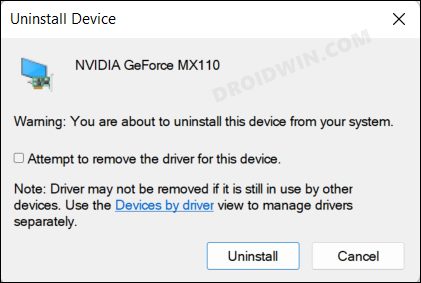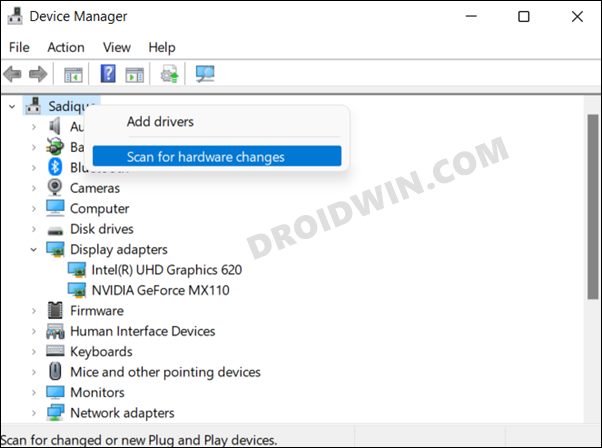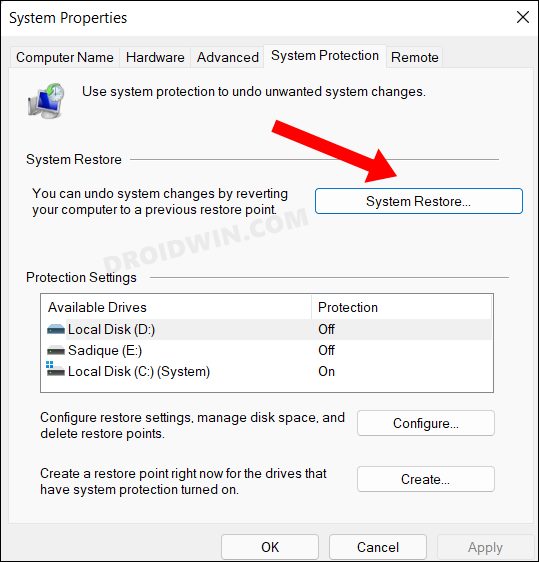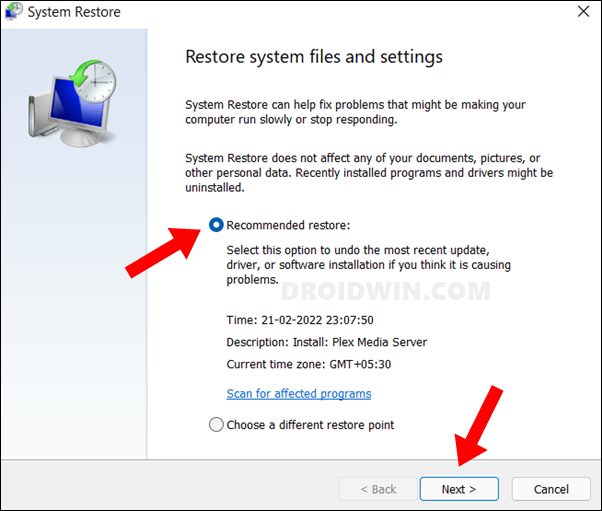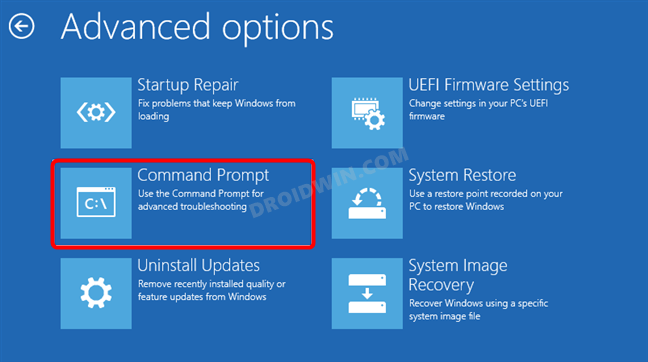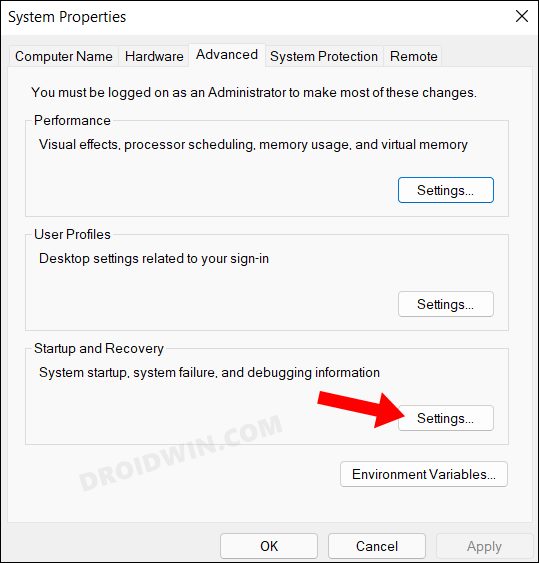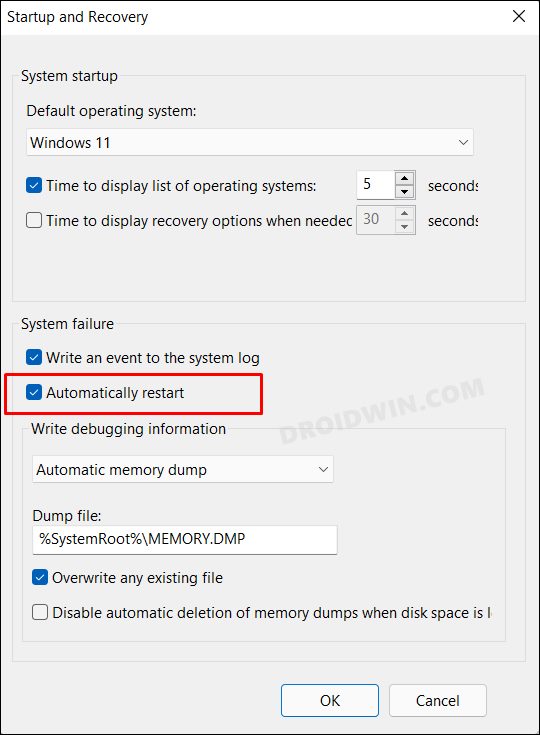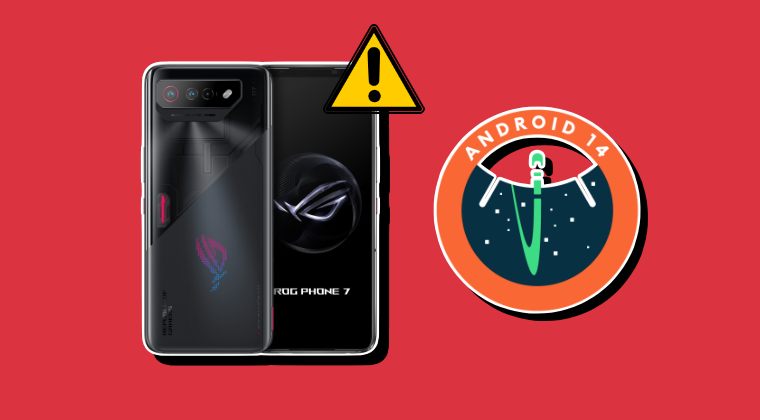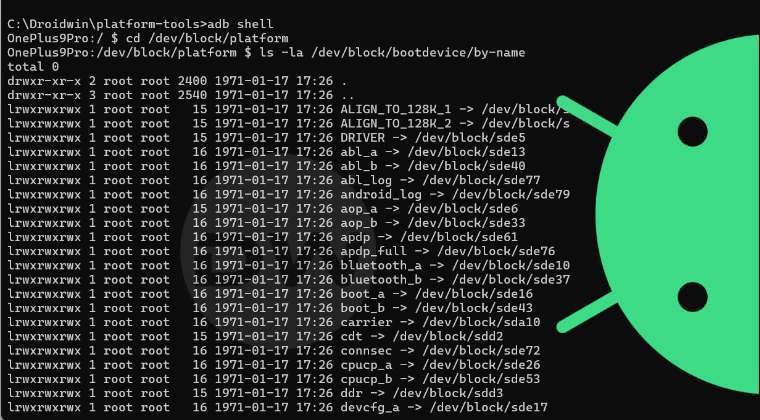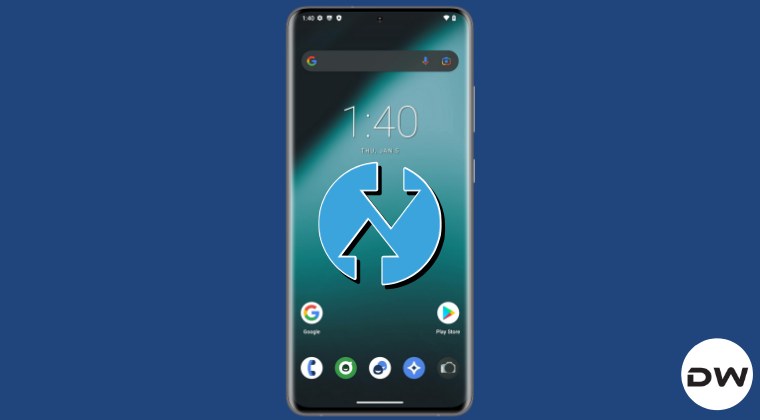In this guide, we will show you various methods to fix the issue of Windows PC randomly turning off after boot. There are quite a few issues that you might come across while using the Redmond giant’s OS. These include the likes of apps not performing along the expected lines to more concerning ones like system crashing and freezing. However, the most frightening issues are of those nature that tends to prevent the PC from a normal boot.
For instance, your PC will suddenly turn while it is still in the booting process or has just booted to the OS. Since there is no error message or BSOD screen, it becomes all the more difficult to diagnose the issue and hence rectify it. With that said, there do exist quite a few nifty workarounds that shall help you fix this issue of Windows PC randomly turning off after boot. So without any further ado, let’s check them out.
Table of Contents
Fix Windows PC randomly turns off after boot
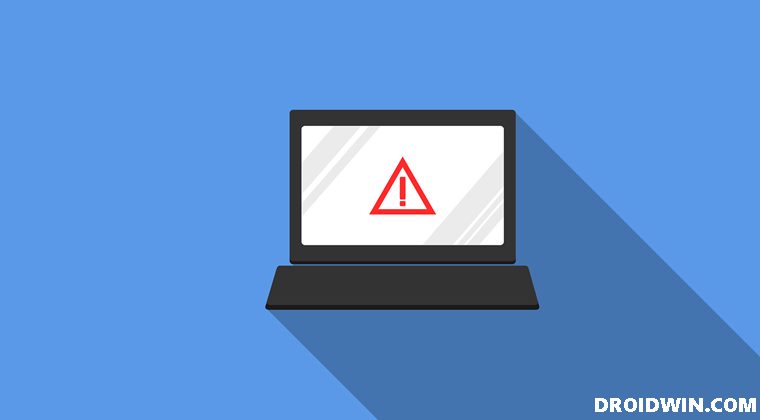
We are listing here eleven different methods to rectify the underlying issue. If you know the root cause of bootloop, then you could directly head over to its associated fixes. However, if you are unable to debug the reason, then the best bet is to try out all the below-mentioned fixes and then check out which ones work out in your favor.
The Prerequisite: Boot to Safe Mode
Before you start off with any of these fixes, you will first have to boot your PC to Safe Mode. But since you cannot access the OS, you wouldn’t be able to boot to this mode via the Settings menu or System Configuration. You will instead have to take the help of Windows Recovery Environment.
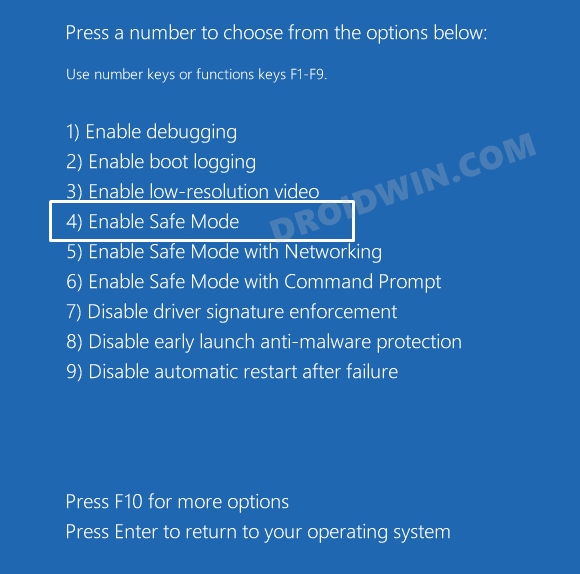
Once you reach there, head over to Troubleshoot > Advanced options > Startup Settings > Click Restart > Press 4 to boot to Safe Mode. Everything has been explained in this guide, please check it out: How to boot Windows 11 to Safe Mode when it cannot boot to OS. Once booted to Safe Mode, you may then proceed with the below methods to fix the issue of Windows PC randomly turning off after boot.
FIX 1: Uninstall Windows Updates
If you are facing this issue after installing a recent Windows update, then you should consider removing that update from your PC right away. Here’s how:
- Use the Windows+I shortcut keys to bring up the Settings menu.
- Then select Windows Update from the left menu bar and go to Update History.

- After that, click on Uninstall Updates. You will be taken to Control Panel.

- Now select the last installed update (refer to the Installed On section) and click Uninstall.
Wait for the process to complete. Once done, restart your PC and check if it fixes the issue of Windows PC turning off after boot
FIX 2: Manually Delete Windows Update Files
In case the Windows update files have got corrupted, then you will have to first stop the Windows Update service and then delete those files. After that, restart the update services so as to re-generate the files. This, in turn, might end up rectifying the underlying issue. So let’s put it to the test right away.
- Head over to the Start Menu and launch Command Prompt as an admin.
- Now execute the below two commands (one at a time) to stop the Windows update service.
net stop wuauserv net stop bits
- After that, bring up the File Explorer via Windows+E shortcut and go to the below location:
C:\Windows\SoftwareDistribution

- Now delete all the files and folders present there. Once done, restart your PC.
- Check if it fixes the issue of Windows PC turning off after boot.
FIX 3: Uninstall Recently Installed Apps
More often than not, a third-party app could well prove to be the culprit when it comes to bootloop issues. While there is no way to establish a shred of concrete evidence for the same, you could try uninstalling the recently installed apps and then check out the results.
- Bring up the Run dialog box via Windows+R.
- Then type in the below command and hit Enter.
appwiz.cpl

- Now right-click on the recently installed app and select Uninstall.
- Proceed with the on-screen instructions to complete the process.
Do so for all the apps that you had installed in the past couple of days prior to the occurrence of this issue. Once the apps are removed, restart your PC and then verify if it fixes the issue of Windows PC turning off after boot.
FIX 4: Update GPU Drivers
Using an old or outdated graphics driver could result in quite a few issues, including the one that we are currently dealing with. Therefore, it is recommended to update the drivers to the latest version, using the instructions given below.
- Press the Windows+X shortcut keys and select Device Manager from the menu that appears.
- Then expand the Display Adapter section, right-click on your graphics card, and select Update Drivers.

- Then choose Search automatically for drivers.

- Windows will now search online for the available drivers and would subsequently download and install them.
- Once done, restart your PC and check if it fixes Windows PC turning off after boot.
FIX 5: Disable Fast Startup
Many users prefer to use the Fast Startup functionality. While it does tend to give an additional boost during the PC boot up, but in some instances, it might conflict with the proper booting up of the PC. Therefore, you should consider disabling this feature, using the instructions given below-
- Launch Run via Windows+R, type in the below command, and hit Enter
powercfg.cpl
- This will open the Power Options. Click on Choose what the power buttons does from the left menu bar.

- After that, click on Change settings that are currently unavailable.
- Now uncheck Turn on fast startup (recommended) and click Save changes.

- Verify if it fixes Windows PC turning off after boot.
FIX 6: Reset Power Plan
If you have created custom power plans such as the High or Ultimate Performance Mode, then it might lead to a few issues with the normal bootup of the system. Therefore, you should consider resetting the power plans to their default state and removing all these custom plans in the process. Here’s how it could be done:
- Launch Command prompt as an administrator from the Start Menu.
- Then execute the below command to reset all the power plans
powercfg -restoredefaultschemes

- Now check if it fixes Windows PC turning off after boot.
FIX 7: Rollback Drivers
There have been a few instances where the OEM has rolled out a buggy driver update for their hardware. Since most users usually keep the automatic driver’s updates enabled, that corrupt update would silently get installed on your PC, and the end result would result in a boot-looped PC. If your system is also currently bugged with this issue, then you will have to roll back the driver to the earlier stable build. Here’s how:
- Use the Windows+X shortcut and select Device Manager from the menu that appears.
- After that, right-click on the concerned driver and select Properties.
- Then go to its Drivers tab and click on Rollback Drivers.
 [If the rollback option is greyed out, then you will have to manually install the roll back driver using its INF file or via its setup file.]
[If the rollback option is greyed out, then you will have to manually install the roll back driver using its INF file or via its setup file.] - Now proceed with the on-screen instructions to complete the rollback.
- Once done, restart your PC and check if it fixes Windows PC turning off after boot.
FIX 8: Reinstall Display Adapter Drivers
In some instances, the display drivers or their configuration files might get corrupted. In those cases, the only way out is to uninstall the buggy drivers and then re-install its latest version from the official site. Here’s how it could be done:
- Open Device Manager from the Start Menu and expand the Display Adapter section.
- Then right-click on the GPU drivers and select Uninstall Device.

- Again, click Uninstall in the confirmation dialog box and then restart your PC to Safe Mode.

- Once your PC boots up, the drivers will be automatically installed.
- If that doesn’t happen, then open Device Manager, right-click on your PC name, and select Scan for hardware changes.

- Windows will now scan for missing drivers and would reinstall them.
- However, if that doesn’t work out, then you may manually install the drivers as well.
Nvidia’s Download Page AMD’s Download Page Intel Graphics Download Page
- Just download the setup from above, launch it and proceed with the on-screen instructions to install it.
- Once installed, restart your PC and it should fix Windows PC turning off after boot.
FIX 9: Using System Restore
If you had earlier created a system restore point (which is always a recommended thing to do), then you could easily bring your PC back to life simply by restoring it. Doing so will not affect your personal files, but it will remove recently installed apps, drivers, and updates (well, which would still be in our favor only). So on that note, refer to the below steps to perform the restore:
- Head over to the Start menu, search Create a restore point, and open it.
- Then click on the System Restore button.

- Now select the desired restore point and click Next.

- Then proceed with the on-screen instructions to complete the process.
- Once done, restart your PC and check if it fixes Windows PC turning off after boot.
FIX 10: Repair Master Boot Record
There could be quite a few reasons why the MBR might get corrupted. These include the likes of a missing boot manager, improper shutdowns, and malware and viruses. When the MBR is corrupted, your PC wouldn’t be able to boot to the OS. To rectify this issue, you will have to repair the Master Boot Record, which could be done as follows:
- To begin with, boot your PC to the Windows Recovery Environment.
- Then select Troubleshoot > Advanced Options > Command Prompt.

- Now execute the following three commands in this CMD window
bootrec /RebuildBcd bootrec /fixMbr bootrec /fixboot
- After that, execute the below command to repair the boot sector:
bootsect /nt60 sys
- Finally, restart your PC for the changes to take place.
- Now check if the Windows PC turning off after boot issue has been fixed or not.
FIX 11: Diagnose BSOD/Stop Error
In the case of Blue Screen of Death, the most important thing is to get hold of the error message that is being displayed on the screen. This is because each BSOD error is unique and has its own set of fixes that might not overlap with outer BSOD errors. But in the case of a boot looped system, it is an extremely challenging task in getting hold of the error message. Fortunately, there does exist a nifty method to stop the PC from continuously booting up, after which you will be able to note down the error message and then act accordingly. Here’s how:
- With your PC booted to Safe Mode, head over to the Start menu and search Advanced system settings.
- Then go to the Advanced tab and click on the Settings menu under Startup and Recovery.

- Now uncheck Automatically Restart and click OK to save the changes.

- Restart your PC. This time, it wouldn’t be stuck in a bootloop, but instead would show you the error code/message.
- Note it down somewhere and then debug it accordingly. Or let us know in the comments and we will get back to you with a solution.
So these were the various methods to fix the issue of Windows PC turning off after boot. If you have any queries concerning the aforementioned steps, do let us know in the comments.
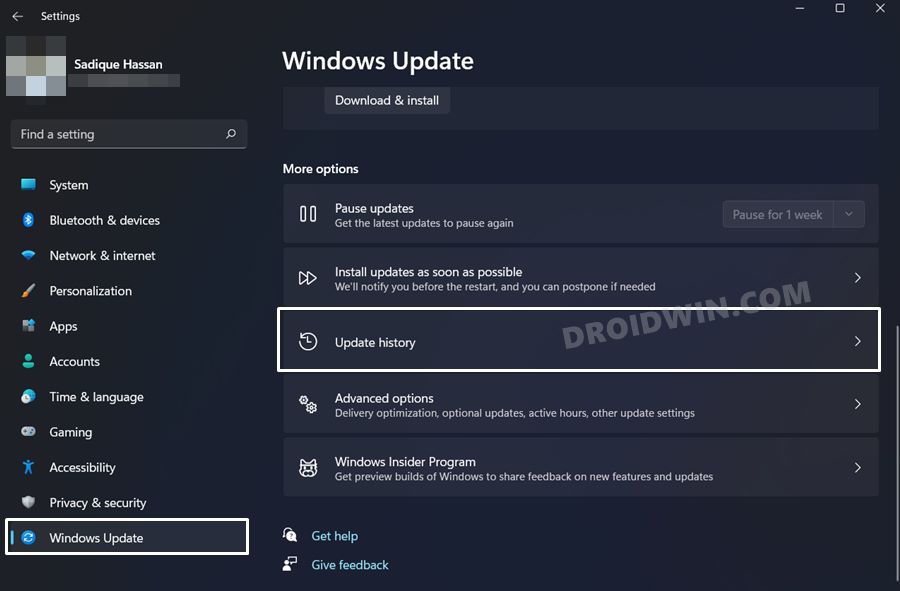

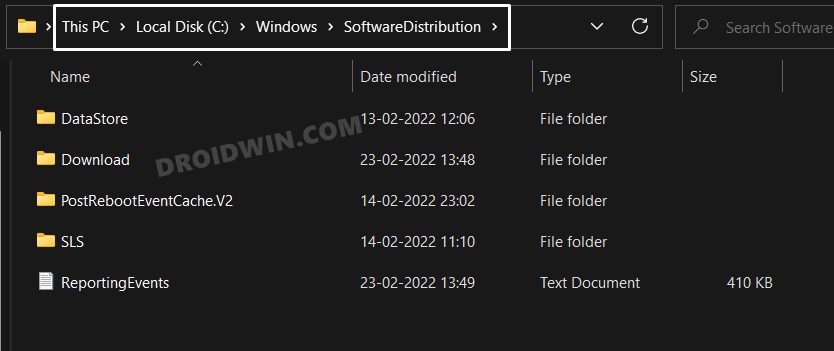
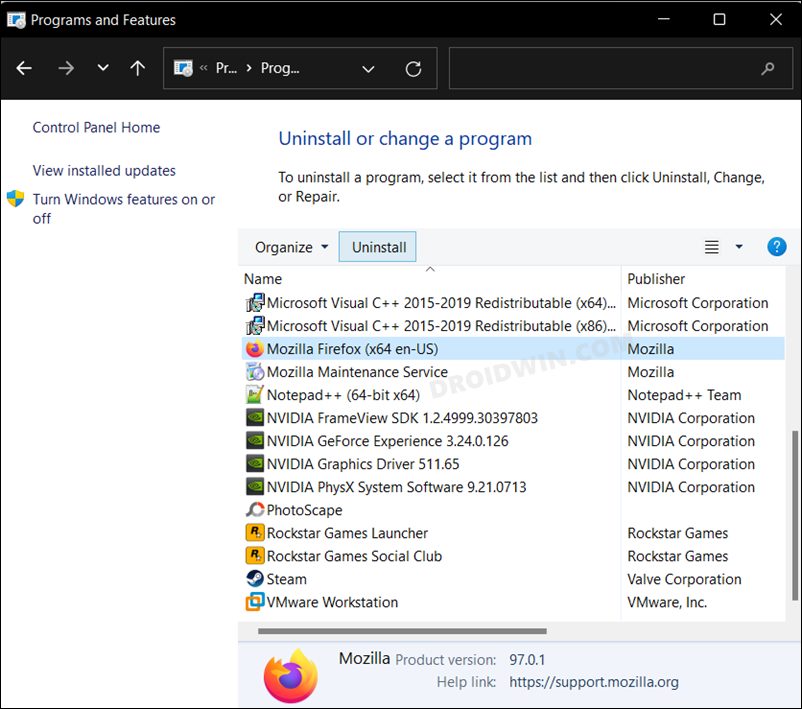
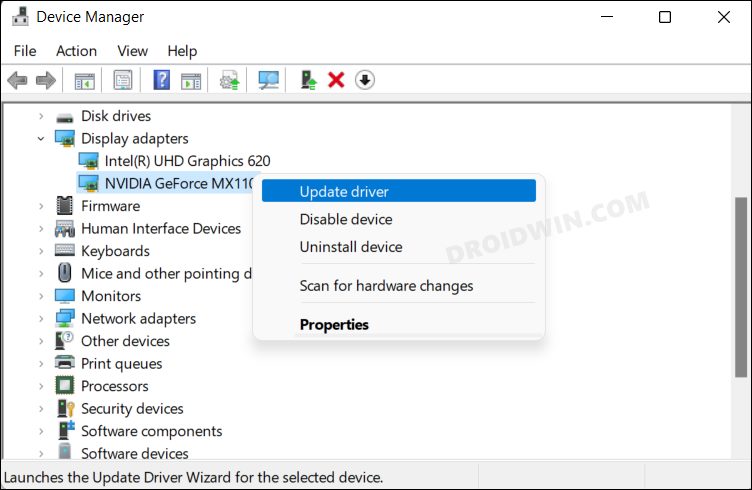
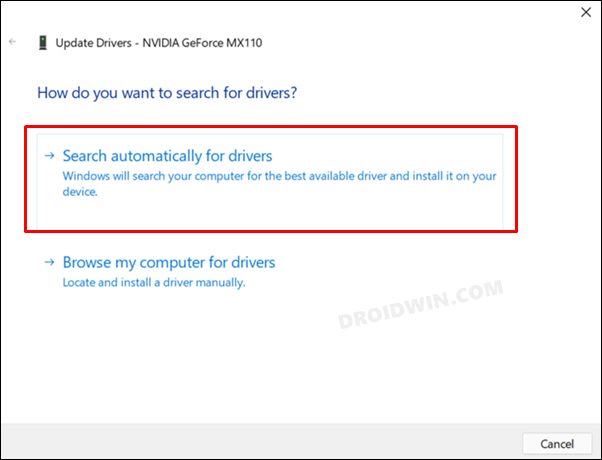
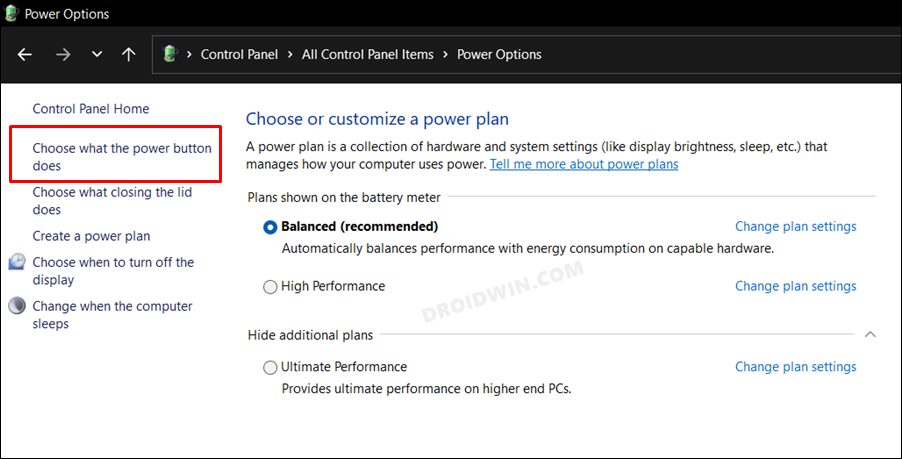
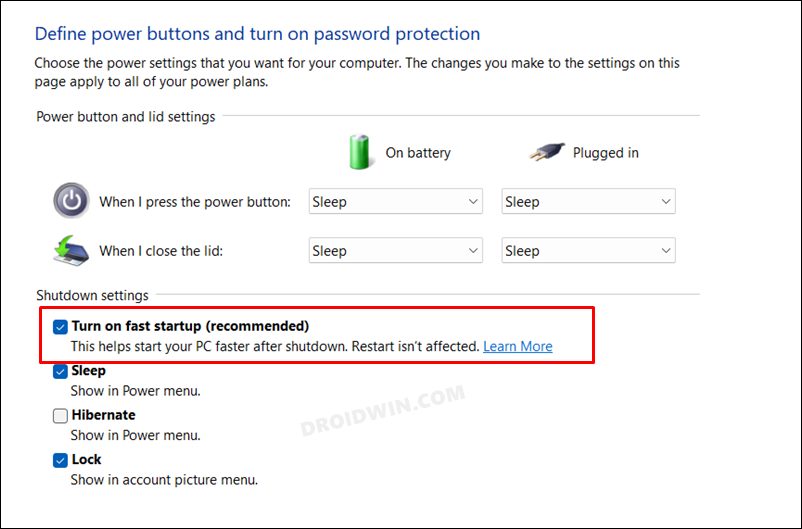
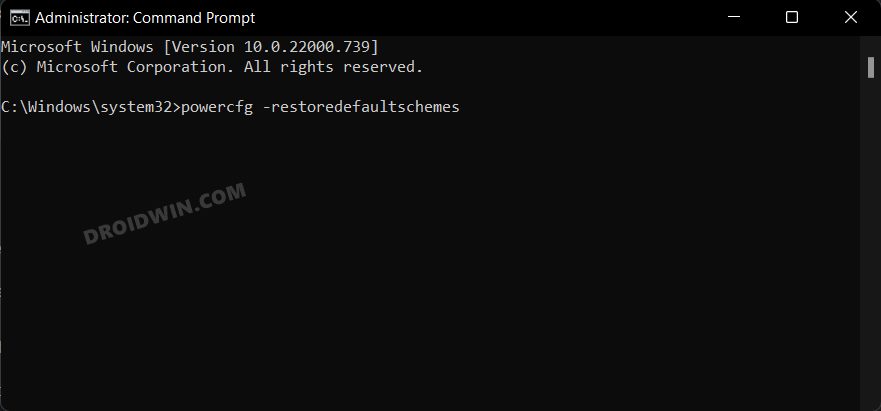
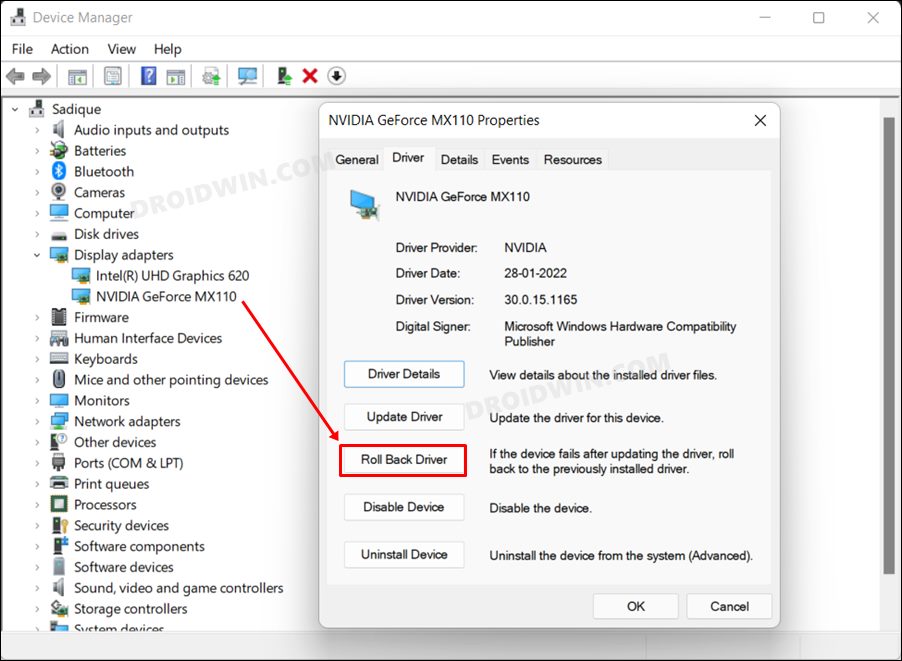 [If the rollback option is greyed out, then you will have to manually install the roll back driver
[If the rollback option is greyed out, then you will have to manually install the roll back driver 
